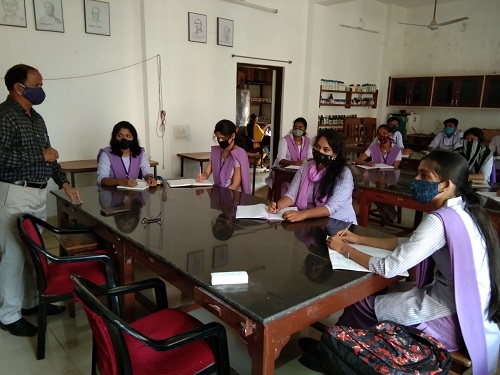NCTE Proposes To Discontinue B.El.Ed Programme From 2026-27 Academic Year
The institutions already running the B.El.Ed programme can continue, but they must switch to the new Integrated Teacher Education Programme before the 2026-27 session begins
NEW DELHI: The National Council for Teacher Education (NCTE) has proposed to discontinue the B.El.Ed (Bachelor of Elementary Education) programme, which was introduced by Delhi University three decades ago.
According to the draft NCTE (Recognition Norms and Procedure) Regulations, 2025, no new admissions will be allowed in any college offering the four-year B.El.Ed course from the 2026-27 academic session.
However, the institutions already running the B.El.Ed programme can continue for now, but they must switch to the new Integrated Teacher Education Programme (ITEP) before the 2026-27 session begins, according to the draft regulations.
“The institutions that have been granted recognition for the four-year B.El.Ed. programme under Appendix 3 of the NCTE Regulations, 2014, shall continue to operate and enrol students, provided that they transition to the new Integrated Teacher Education Programme (ITEP) under these norms and standards before the 2026-27 academic session begins. The B.El.Ed. program under Appendix 3 of the NCTE Regulations, 2014, shall be discontinued from the 2026-27 academic session, and no fresh admissions will be permitted in any existing institution offering the four-year B.El.Ed. program under the mentioned Appendix 3,” an official statement reads.
The NCTE last set rules for teacher education in 2014, which included the B.El.Ed programme to train teachers for Classes I to VIII. Delhi University launched it in 1994, and NCTE regulated it in 1999.
“This year, B.El.Ed admissions will continue, but from 2026, no new admissions will be allowed. We propose transitioning this programme into ITEP as part of the National Education Policy 2020 changes,” NCTE Chairman Pankaj Arora said to the Indian Express.
ITEP with specialisation
However, the ITEP (Integrated Teacher Education Programme) is a four-year course starting in 2025-26. It will offer four specialisations: Yoga, Physical Education, Sanskrit Education, and Art Education.
In 2023, the Delhi University Academic Council approved a resolution to replace B.El.Ed with ITEP.
NCTE has also proposed reducing the duration of B.Ed and M.Ed programmes back to one year, starting the 2026-27 academic session. This change comes a decade after the courses were extended to two years.
ALSO READ: NCTE All Set To Revive One-year B.Ed And M.Ed Programmes After 10 Years
However, the National Testing Agency currently conducts CUET-UG and CUET-PG for admissions to B.Ed and M.Ed programmes in central universities. The draft regulations highlight ITEP as a key requirement. Any institution wishing to offer a B.Ed must already have ITEP or start it by 2030.
Poonam Batra, a former Delhi University professor of education who played a key role in developing and coordinating the B.El.Ed programme for over two decades criticised its discontinuation.
“Closing down the B.El.Ed will be a major disservice to teacher education. It is the only integrated programme that prepares teachers through strong interdisciplinary study, enabling them to innovate in classrooms based on new knowledge, diverse student contexts, and queries. The programme is rich in both content and pedagogy, focuses on personal and professional development, and integrates theory with practice through a 70% practicum over four years. Many of its features have influenced the two-year B.Ed,” she told the Indian Express.
“Curriculum design has always been the university’s prerogative. With ITEP, this autonomy is taken away, making teacher preparation more uniform. How can teachers then cater to diverse classrooms, which is a reality in India? ITEP claims to be integrated, but it follows a 3+1 model—three years of graduation and one year of education within a colonial framework. This is exactly what B.El.Ed successfully changed. Why close it then?” she asked.


Comments are closed.